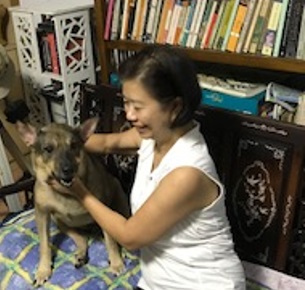Profile: Up Close with Associate Professor Tan Boon Huan
| By Sanjay Devaraja, Editor, The LKCMedicine |
Associate Professor Tan Boon Huan is a faculty member with the Respiratory and Infectious Disease Programme at LKCMedicine, where she teaches diagnostics, virology, and biosafety. She started her career in Defence Science and has accumulated more than 20 years of experience with the defence ecosystem in Singapore. Her exceptional technical skills have been acknowledged through various accolades, including the esteemed Defence Technology Prize in 2020, conferred by Singapore’s Defence Minister Dr Ng Eng Hen.
As part of NTU’s research outreach programme, she recently mentored two students from Nanyang Junior College and Jurong Pioneer Junior College for their Nanyang Research Programme (NRP) project, which began in April 2023. This is LKCMedicine’s first NRP collaboration with junior college students led by Assoc Prof Tan.
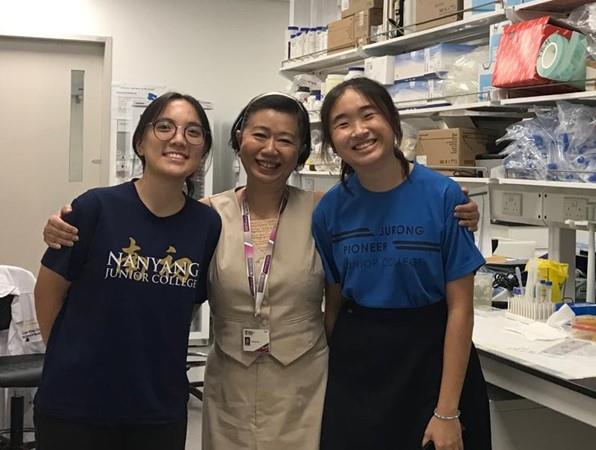
1. Please share with us your experience mentoring junior college students under the NRP.
From April to December 2023, I trained two JC1 students, Lim Ze Ing and Priscilla Lim from Jurong Pioneer Junior College and Nanyang Junior College respectively under the Nanyang Research Programme (NRP).
The NRP offers JC1 and Year 5 students a diverse array of research topics, providing an immersive opportunity to delve into research under the direct mentorship of NTU faculty and researchers. The participants either participate as single student or in pairs and engage in hands-on research activities aimed at cultivating their interests and aptitudes in research. The programme culminates in the submission of a Research Paper in January of the following year, followed by an Oral Presentation Assessment in February or March where one faculty staff will assess their presentation. In my case, Assoc Prof Kevin Pethe was their assessor.
2. What projects did the students work on and what were their findings?
Their project was to determine the microflora in Nanyang Lake. The girls came once a week when their schoolwork permitted time, for two hours at a time. During their school holidays, they spent up to a full day in the lab with me.
In their findings, they found that human bacteria could potentially cause enteric diseases as well as an interesting bacterium that could degrade plastic. This was exciting and the next couple of students for year 2024 intake will proceed to validate these findings.
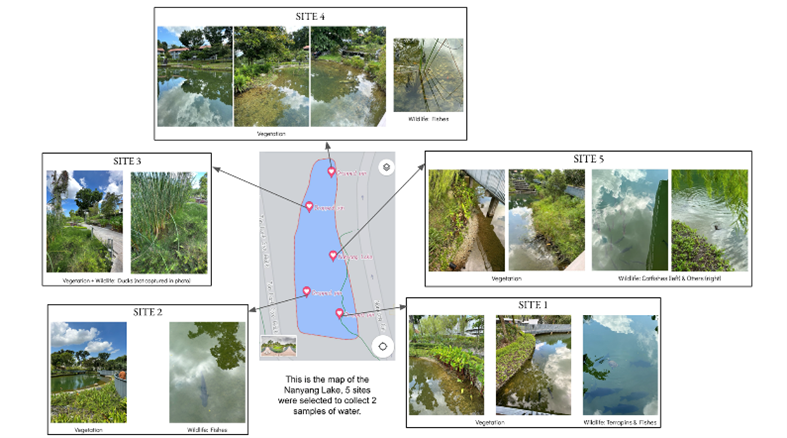
3. What were the challenges that you and the students faced and how did you/they overcome them?
There were two main challenges – their inexperience working in the laboratory, and time management.
Their inexperience meant that they required training on basic skills as well as close supervision over all laboratory activities. Exercising a lot of patience was crucial for them. To my surprise, they managed to learn how to culture bacteria, perform polymerase chain reaction (PCR) and analyse deoxyribonucleic acid (DNA) sequences by doing basic bioinformatics to identify the bacteria.
The NRP project is an extra co-curricular activity (CCA) on top of their regular coursework and college activities. Hence, finding time to come down to NTU laboratory was always an issue, coupled with the fact that I am over at the Novena Campus in the afternoons as I hold a joint appointment with DSO as my primary employment and with LKCMedicine as my second appointment. I recall we spent a lot of time working from 6pm to 8pm, ‘feeding’ the girls before we started our bench work as they were always hungry!
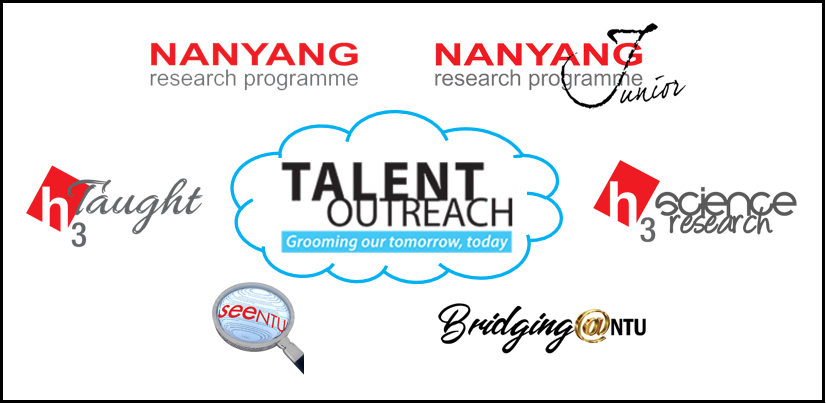
4. Having led LKCMedicine’s first NRP collaboration with junior college students, what were the key takeaways? How can future collaborations be further improved?
I did not realise that I was the first staff from LKCMedicine to participate in the programme until the project was nearing its completion and I was informed by Talent Outreach. By then, I had enjoyed myself tremendously as it was really refreshing teaching eager faces.
I spent a lot of time laughing ‘together’ at the students’ strange antics – wearing their first pair of laboratory gloves, blowing the many bubbles of reagents before they could finally pipette LB broth into tubes to grow bacteria; the countless number of pipette tips they broke before they finally mastered the technique. Not to mention the plenty of food for the hungry students!
To improve future collaboration, I would suggest that the students’ respective POCs from the junior colleges connect frequently with NTU faculty and check in on the students to understand their interests. This might also help to reduce the stress level in these students.
5. Why should more students come forward to participate in the Nanyang Research Programme? What does this mean for LKCMedicine?
I have always believed that we should cultivate the interest of the youths. It is a way to groom the future generations of leaders. Many of these students are interested in pursuing Medicine as their career and this programme is a good outreach for LKCMedicine to solicit students of interest. The ‘science’ part of their attachment is also aligned to the way LKCMedicine organises scholarly projects for its students to understand the science in their medical vocations.
For my first project in 2023, I had to select two students from a group of 30 for the project. For my current project this year, I had to select two students from a group of 60, also for a similar project. If this is a successful outreach to the 30 or 60 students, then we would have attracted quite a lot of positive applications to LKCMedicine here!
If I could afford more time, I would love to accept the challenge of taking in more college students to nurture them. Well, maybe next year…
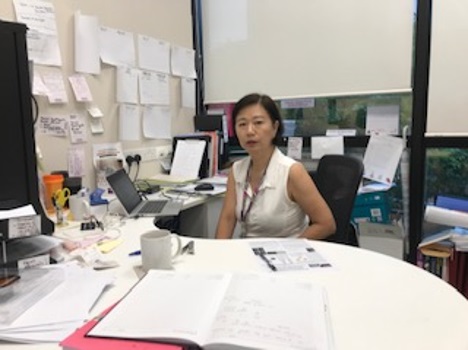
6. You have more than 30 years of experience researching viruses. Please share with us your memorable moments in your research endeavours.
Yes, I did my PhD on dengue virus, and then went overseas to do my post-doc, working on BlueTongue virus and Epstein Barr Virus that cause nose and throat cancer, before returning to Singapore where I worked with more RNA and DNA viruses.
I had plenty of happy memories. In 2003, I was involved during SARs-1 crisis and represented Singapore at the World Health Organization (WHO) meeting in Geneva. Twenty years later in 2023, I received the Bronze Public Administration award from the President’s office for helping out with COVID-19 for the Defence ecosystem.
7. You have mentioned that you welcome students and interns who wish to have first-hand experience working with live viruses. What can they expect to learn training with you?
It will be first-hand experience because I actually do train, supervise and mentor them directly. They can expect training on good laboratory practices which would allow them to work on the bench and biosafety training to handle live cultures of microbes. For the latter, we will mainly work with risk group 1 and 2 microbes. In this case, it could be either bacteria or viruses. Other than technical training, they can also expect learn to develop soft skills such as analytical skills and critical thinking skills, as I teach them how to navigate their way around the experiments we conduct in the laboratory. And when things don’t work, I will teach the students to do an abridged root cause analysis.
8. What are some of the key research projects that you are/will be working on?
I am involved with many projects as I have a lot of interests – ranging from education to research. In education, I have initiated training for biosafety containment using gamification and virtual reality – it is the first of its kind in Singapore. I hope to bring this training to the national level.
In research, my interests include method development for diagnostic virology, understanding the biology of respiratory viruses especially those targeting children and the elderly, and searching for broad-based virus therapeutics.
9. Your multiple roles must keep you busy! What do you enjoy doing in your free time?
I enjoy being busy, though I have to admit that it is not easy to toggle between DSO and LKCMedicine. In my free time, I enjoy handicrafts such as crocheting, sewing, and my latest hobby which I am aiming to start is recycling old jeans into useful articles. Right now, I am collecting patterns. I also spend time with my fat dog, who runs away to hide when he knows that I am planning to take him out for walks. He prefers instead to go on long car drives during the weekend.
